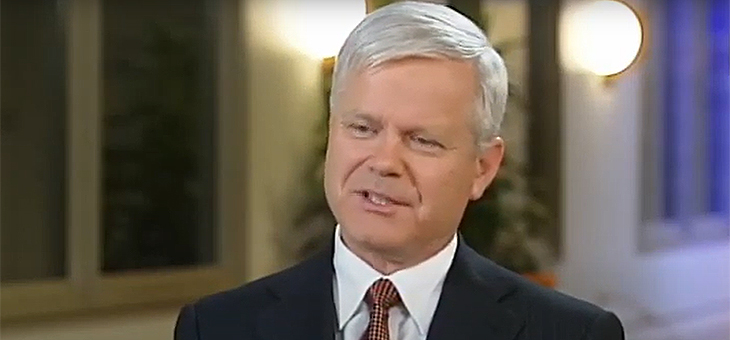While Australia has entered its first recession in 30 years, according to one foremost economist, things aren’t as bad as they seem
Deloitte partner and economist Chris Richardson told the Press Club this week that he’s not worried about the economy but believes stimulus policies need to be extended.
Mr Richardson pointed out that, while “incredibly obvious and newsworthy” stories about higher debt are taking up much of the public consciousness, people need to understand that, put in context, Australia may not be in as bad a position as the media would have you believe.
“That’s the point, this is not an ordinary economy. People have misunderstood what is happening right now, and I am desperate to get that across,” he said, adding that while debt has increased rapidly, interest rates have also fallen quickly and should remain low for at least three years.
“That means something really important,” he said.
He added that, even though the government is borrowing and spending heavily right now, “the cost of interest, the amount of interest the federal government is paying right now is headed down … a share of the economy. In fact, the lowest that we’ve seen in the better part of a decade. Why? Because interest rates have fallen so spectacularly.”
“The defence of our lives and our livelihoods is a lot cheaper; this is a great investment … and it’s a lot cheaper than you think.”
And according to a Yahoo Finance report, Mr Richardson believes Australia is in a good position to cope with the COVID-19 challenge.
“We entered this crisis with a healthy budget and lower government debt than most other nations around the world. And that has been perhaps the hidden asset we noticed the least through this,” he said.
“2020 has been a war for our health. The next war is a war for our jobs. And a war for health has many beneficiaries, but perhaps [mainly] older Australians, we’re protecting older Australians. The next battle, the battle for jobs, particularly will be about a battle for younger Australians.”
And though as a nation we may be on the front foot financially, Australians, especially those on lower incomes and who have lost jobs, should still prepare to tough times ahead.
Mr Richardson believes the key to surviving this challenge is JobSeeker unemployment benefits, saying there was a strong case to lift the payments before the pandemic sent one million into unemployment.
The $550 Coronavirus Supplement introduced earlier this year, essentially doubled the fortnightly JobSeeker payment to around $1100.
However, as of 25 September 2020, the government plans to reduce the supplement to $250 per fortnight.
“If it [JobSeeker] goes back to $40 a day, it’s going to be twice as bad because it’s going to be affecting the incomes of twice as many people,” said Mr Richardson.
Australian Council of Social Services chief Dr Cassandra Goldie agreed with Mr Richardson’s point, saying JobSeeker and JobKeeper payments must remain at their present rates, as a “devastating cut” for two million Australian families will send them into poverty.
Mr Richardson said every dollar spent on unemployment benefits now will help the economy.
“And the last point – something that people I think haven’t noticed – postcode by postcode, suburb by suburb, town by town, this crisis hit hard where we already had the highest rates of unemployment,” he said.
“We’ve had relatively the most job losses where unemployment was already the highest. That means particular regions are doing it really, really tough, and an extra dollar of unemployment benefit does double duty. It does extra heavy lifting at the moment as the best targeted, most effective regional spending we can do.”
Do you agree that, as a nation, we are fit to handle the challenges presented by the pandemic? Do you agree that unemployment benefits and government assistance should stay at the levels we are currently seeing? What suggestions do you have for coping with COVID-19?
If you enjoy our content, don’t keep it to yourself. Share our free eNews with your friends and encourage them to sign up.
Related articles:
https://www.yourlifechoices.com.au/health/covid19/covid-changes-here-to-stay
https://www.yourlifechoices.com.au/retirement/news/covid-to-delay-retirement
https://www.yourlifechoices.com.au/health/covid19/life-after-covid-a-myth-experts

